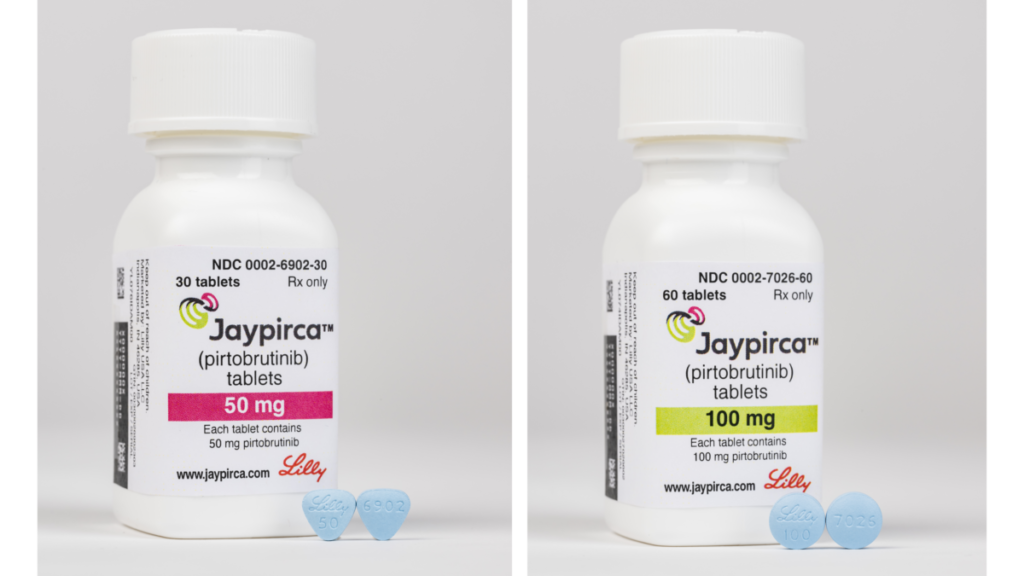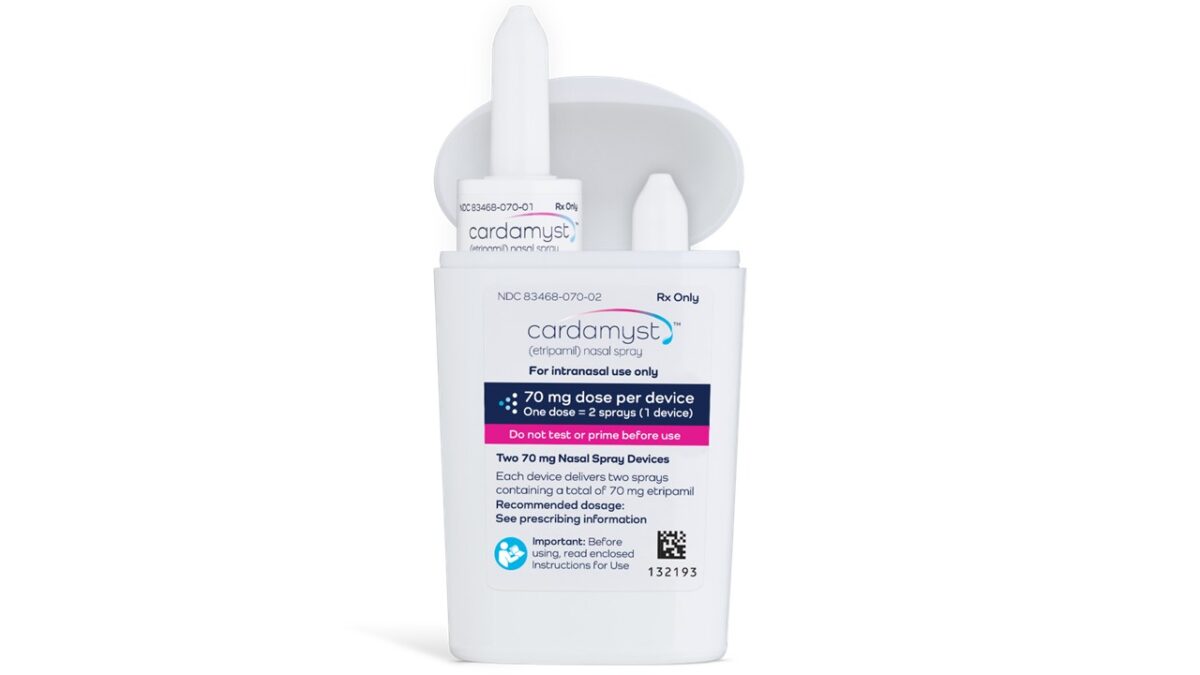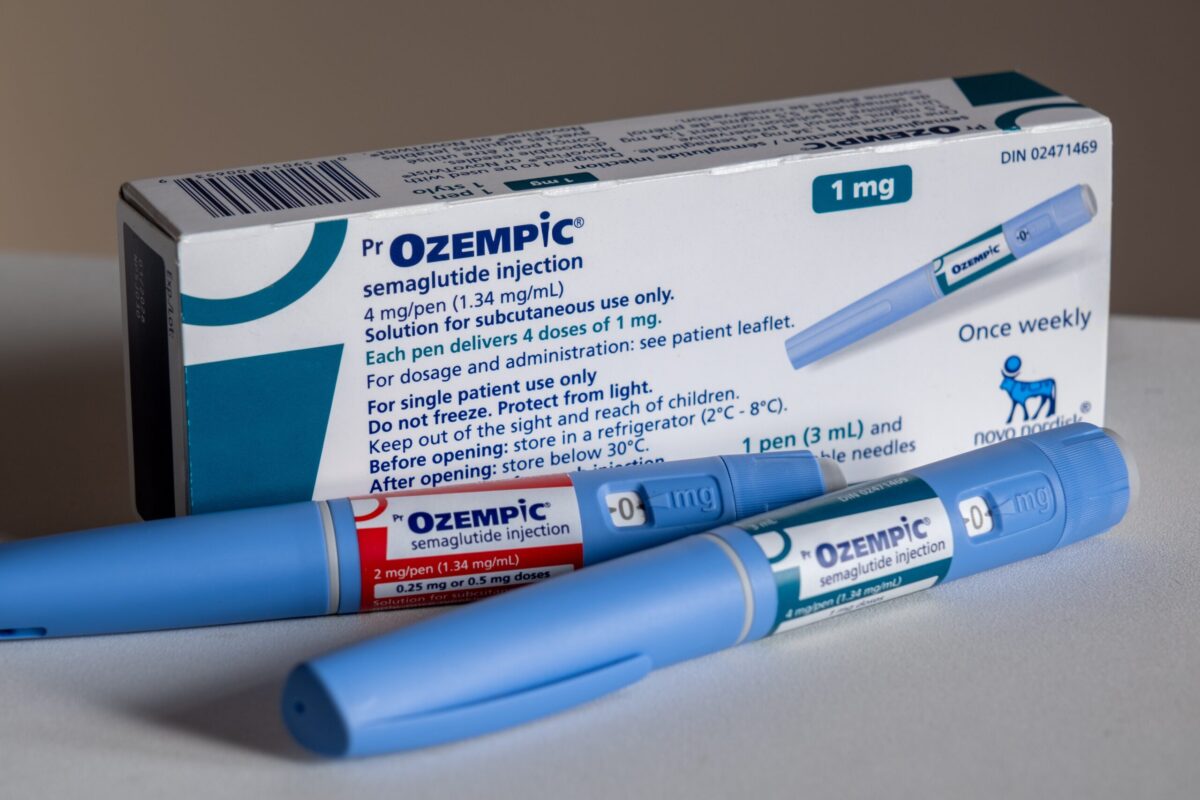Loxo Oncology (Eli Lilly and Company) recently announced that their Bruton tyrosine kinase inhibitor (BTKi), Jaypirca (pirtobrutinib), was approved by the US Food and Drug Administration (FDA) to treat adults with relapsed or refractory mantle cell lymphoma (R/R MCL) under the Accelerated Approval pathway. Jaypirca is the first BTKi available to treat MCL following two previous lines of systemic therapy, including a covalent BTKi.
The decision was based on the results from a Phase I/II study, and continued approval is dependent upon the results of a confirmatory Phase III trial.
Mantle Cell Lymphoma Is a Rare Blood Cancer
MCL is a type of non-Hodgkin lymphoma, which affects white blood cells (lymphocytes) within the lymphatic system. MCL affects one out of 200,000 people each year, and risk factors include male sex and older age.
Malignant B-cells within the mantle zone of the lymph node disrupt the body’s ability to fight off diseases. These cells can spread to other parts of the body including the bone marrow. Symptoms of MCL include swollen lymph nodes, fatigue, and nausea and vomiting.
MCL is treated based on a variety of factors such as age and disease stage; however, additional treatment options are needed for R/R patients.
Jaypirca (pirtobrutinib) Works Differently Than Other BTKis
Tyrosine kinases are signaling molecules that affect multiple protein pathways and therefore play important roles in cell growth and survival, making them ideal targets of anticancer therapies. Different types of TKIs have been approved to treat multiple cancers, including blood cancers.
Jaypirca is a highly-selective, small molecule, noncovalent (reversible) BTKi, which inhibits BTK kinase activity by binding to wild type (normal) BTK and mutated BTK (C481 mutations). This novel mechanism of action differentiates Jaypirca from other currently available covalent BTKis.
Pre-clinical studies showed that Jaypirca inhibited BTK-mediated malignant B-cell proliferation in a dose-dependent manner, and that it is 300 times more selective for BTK compared to 98 percent of other kinases that were tested. It is currently the first and only FDA-approved non-covalent BTKi.
Jaypirca (pirtobrutinib) Was Approved Based on Results of the BRUIN Trial
The Phase I/II BRUIN trial, which is ongoing, is an open-label, international, single-arm study to evaluate the safety and efficacy of Jaypirca as a monotherapy in adults with R/R MCL. Participants enrolled in the study must have received prior treatment with two lines of therapy, including a covalent BTKi. Approval was based on results from a subset of patients in the study (n = 120).
The trial included three arms: Phase I dose escalation, Phase Ib combination and Phase II dose expansion.
- Phase I: primary endpoint was the maximum tolerated dose; secondary endpoints included safety, pharmacokinetics (PK) and overall response rate (ORR).
- Phase Ib: primary endpoint was the safety of drug combination; secondary endpoints included PK and ORR.
- Phase II: primary endpoint was ORR; secondary endpoints included best ORR, duration of response (DOR), progression-free survival (PFS), overall survival (OS), safety and PK.
Pirtobrutinib treatment resulted in an ORR of 50 percent with a complete response of 13 percent and partial response of 38 percent. Median time to response was 1.8 months and median DOR was 8.3 months; the DOR rate at 6 months was 65.3 percent.
Safety analysis was performed in 128 patients in the trial. Serious adverse reactions (ARs) occurred in 38 percent of patients; those that occurred in 2 percent or greater included pneumonia, COVID-19, musculoskeletal pain, hemorrhage, pleural effusion and sepsis.
The most common ARs (≥15 percent) are fatigue, musculoskeletal pain, diarrhea, edema, dyspnea, pneumonia and bruising. Grade 3 or 4 laboratory abnormalities (≥10 percent) include decreased neutrophil, lymphocyte and platelet count.
XTALKS WEBINAR: Setting Your Site up for Success Whether You Are New to Research or Experienced
Live and On-Demand: Tuesday, March 14, 2023, at 1pm EDT (10am PDT)
Register for this free webinar to explore ways to advance the development of new medicines and increase revenue while offering patients world-class treatments.
What You Should Know about Taking Jaypirca (pirtobrutinib)
The recommended total daily dose of Jaypirca is 200 mg. It should be taken orally once daily in either four 50-mg or two 100-mg tablets.
Warnings and precautions for Jaypirca include potential infections, hemorrhage, cytopenias, atrial fibrillation and atrial flutter, second primary malignancies and embryo-fetal toxicity. Those taking strong CYP3A inhibitors, strong or moderate CYP3A inducers, or sensitive CYP2C8, CYP2C19, CYP3A, P-gp, or BCRP substrates will require dosage adjustments. Patients who are lactating should not breastfeed if taking this medication.
Price of Jaypirca
Jaypirca will cost $21,000 for a 30-day supply and will be available in the US in the coming weeks. Actual out-of-pocket costs will differ based on insurance carriers.
“Until now, people living with MCL who can no longer be treated with BTK inhibitors have had few alternatives,” said Meghan Gutierrez, chief executive officer, Lymphoma Research Foundation, in Eli Lilly’s press release. “The approval of Jaypirca brings a new treatment option and, along with that, new hope for people with relapsed or refractory MCL.”
The ongoing open-label, Phase III trial is further investigating the safety and efficacy of Jaypirca and is currently recruiting participants (expected completion date is April 2025). This study will evaluate adult patients with MCL who received at least one prior therapy, which did not include treatment with a BTKi.












Join or login to leave a comment
JOIN LOGIN